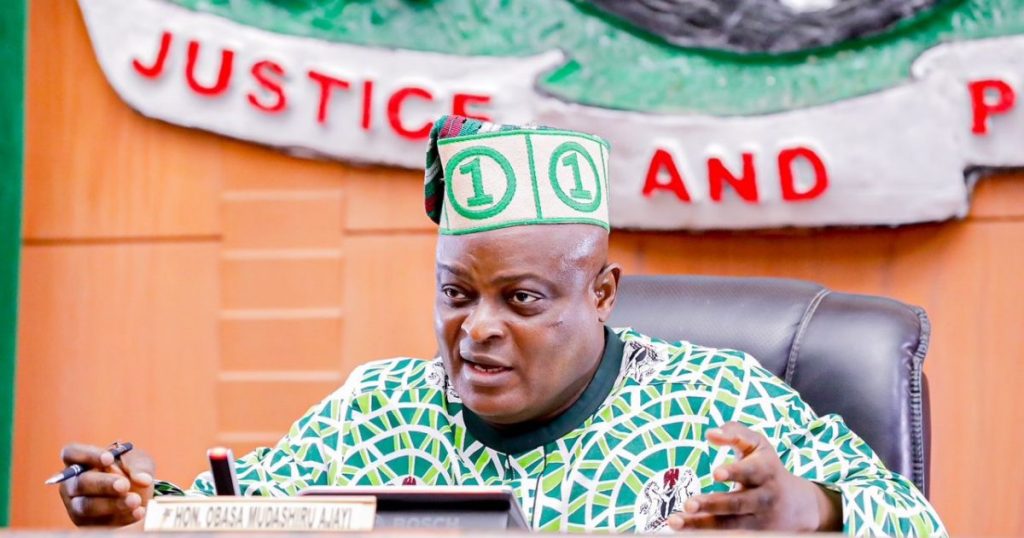The political landscape of Lagos State experienced a notable shift with the return of Abdul-Azeez Adediran, widely recognized as Jandor, to the All Progressives Congress (APC). Jandor, the former governorship candidate of the Peoples Democratic Party (PDP), was received with open arms by the Speaker of the Lagos State House of Assembly, Mudashiru Obasa, who hailed his return as a significant boost for the ruling party. This reunion signifies a potential realignment of political forces within the state and raises questions about the future dynamics of the political arena.
Obasa’s enthusiastic welcome of Jandor underscored the APC’s eagerness to consolidate its power base in Lagos. The Speaker’s praise for Jandor’s “courage and conviction” in returning to the APC, coupled with his assurance of full reintegration, points to a strategic move by the ruling party to absorb influential figures from the opposition. This welcoming stance suggests that Jandor’s prior affiliation with the PDP will not be held against him, and he will be given the opportunity to actively participate in the party’s activities. The APC’s emphasis on inclusivity and unity serves as a backdrop for this reconciliation, potentially signaling a broader strategy to minimize political fragmentation and maintain a strong grip on power within the state.
Jandor’s decision to rejoin the APC, the party he left to pursue his gubernatorial ambitions under the PDP banner, has generated both excitement and controversy. His public endorsement of President Bola Tinubu’s recent tax reforms further cements his renewed allegiance to the APC and positions him as a supporter of the current administration’s policies. While Jandor cites indiscipline and anti-party activities within the PDP as reasons for his departure, the timing of his return, shortly after the presidential elections, raises speculation about the motivations behind his move. His effusive praise for President Tinubu’s reforms, despite public opposition, can be interpreted as a strategic effort to align himself with the prevailing political winds.
The fallout from Jandor’s return has reverberated through the PDP, with accusations of him being a planted agent to destabilize the party. Tai Benedict, the Deputy Chairman of the PDP in Lagos, leveled these allegations, suggesting a deep sense of betrayal and mistrust within the opposition party. These accusations paint a picture of internal strife and potential vulnerabilities within the PDP’s ranks, possibly exploited by the APC to weaken its main competitor. The claim that Jandor was a deliberate infiltrator raises questions about the extent of political maneuvering and the lengths to which parties might go to gain an advantage.
Jandor’s reintegration into the APC has been met with varying reactions. While the ruling party celebrates his return as a sign of growing support, the PDP views it as a setback and a testament to internal divisions. This contrasting perspective highlights the ongoing power struggle between the two major parties in Lagos State. The APC’s narrative emphasizes inclusivity and the strength of its political platform, while the PDP’s narrative focuses on internal sabotage and the alleged manipulation of key figures. This divergence in interpretation underscores the highly charged political atmosphere and the deep-seated rivalry between the two parties.
The long-term implications of Jandor’s return to the APC remain to be seen. Whether his reintegration will significantly strengthen the ruling party’s position in Lagos and further marginalize the opposition remains an open question. The accusations of him being a planted agent will likely continue to fuel speculation and mistrust within the political landscape. Jandor’s future role within the APC, the impact on the PDP’s ability to regroup, and the overall effect on the political dynamics of Lagos will be key areas to observe in the coming months. His actions and the responses from both parties will shape the evolving political narrative and potentially influence the outcome of future elections in the state.


